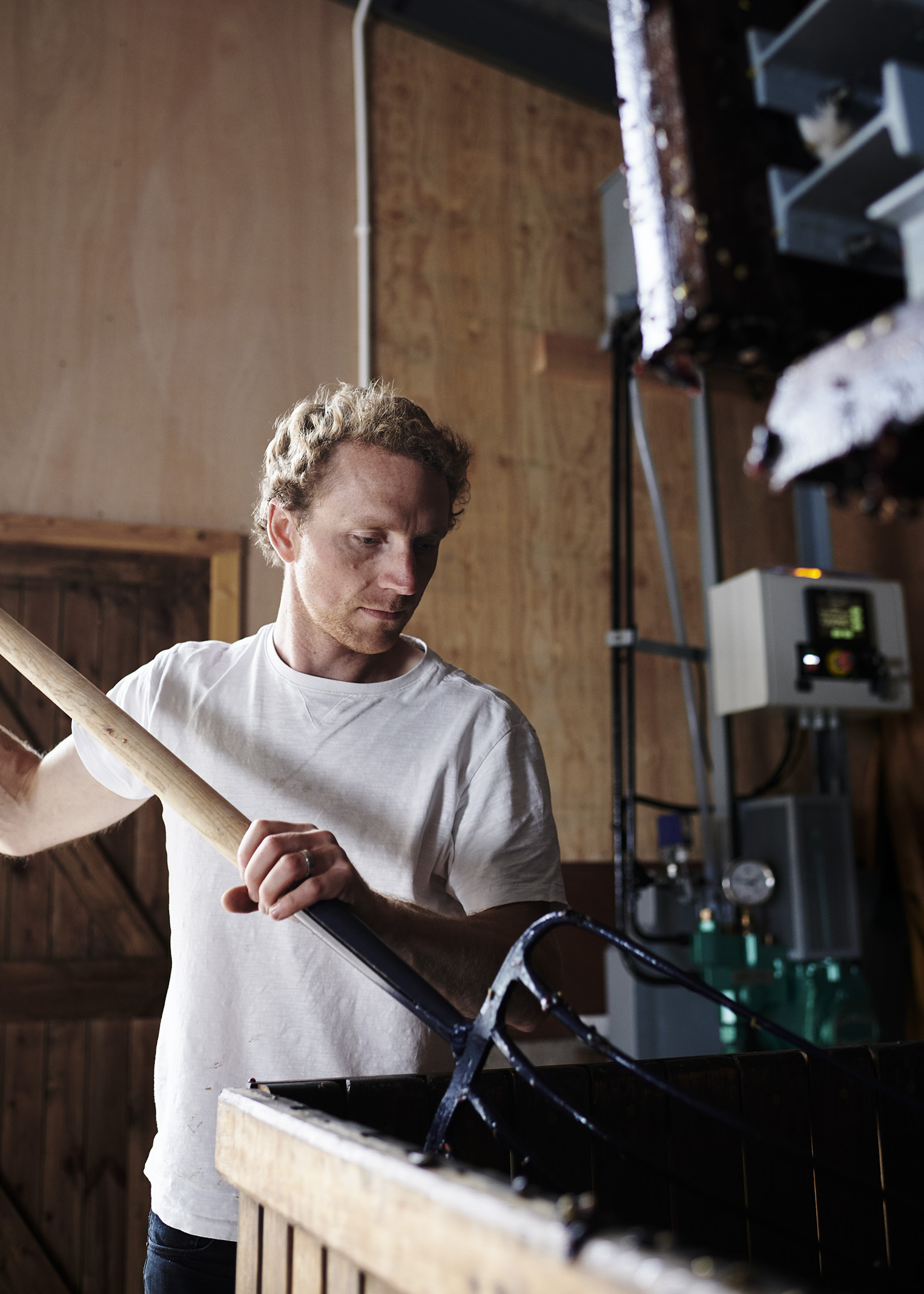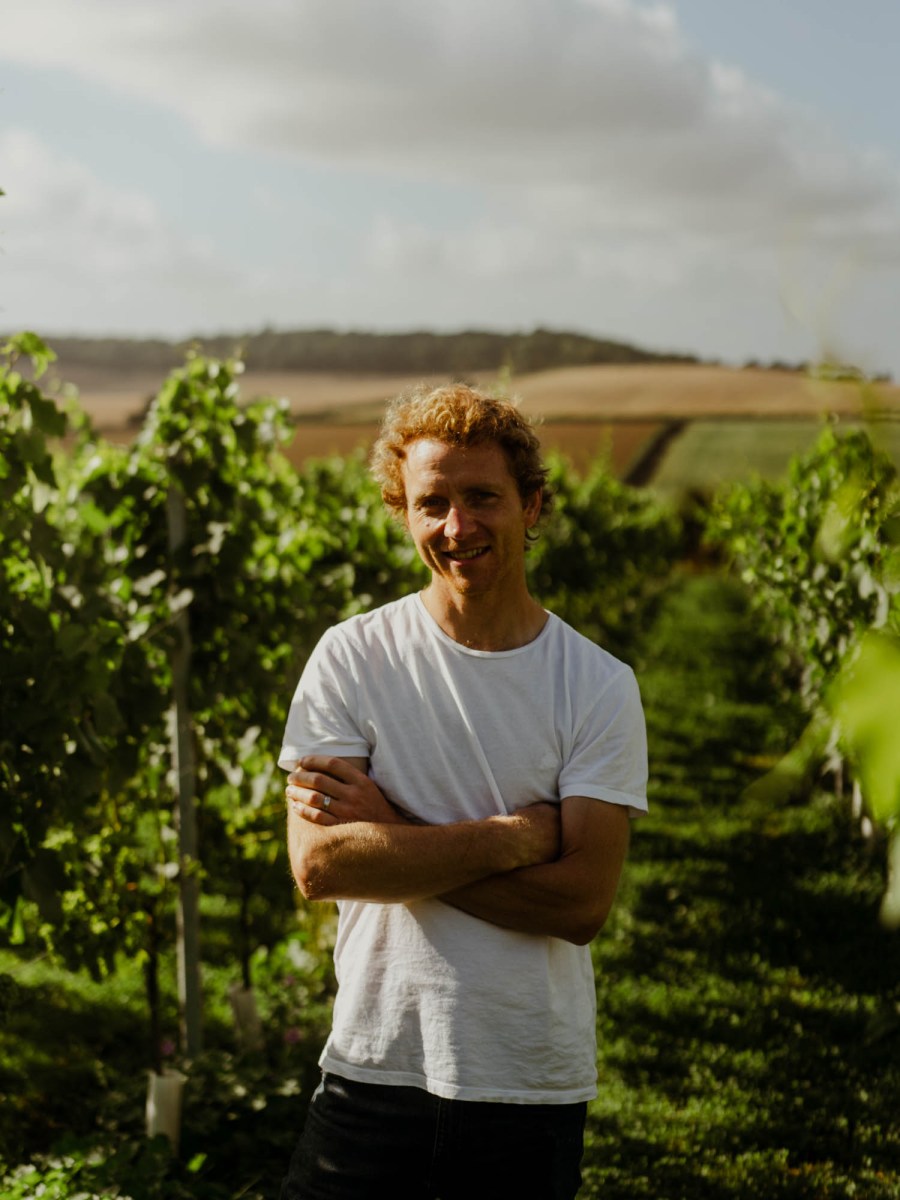Daniel Ham started Offbeat Wines in 2018 to provide freedom for his creativity and to make grape-driven expressive wines.
Daniel Ham was bitten by the winemaking bug in New Zealand while working as a marine biologist and uses his background to create some of the country’s most interesting wines.
Why did you become a winemaker?
I lived in New Zealand for three years working as a marine biologist. I enjoyed being out on the boats but didn’t enjoy many hours looking down a microscope, I needed to be more creative and became obsessed with the idea of making wine. There were a couple of winemakers in Central Otago whom I greatly admired – and I wanted to be just like them. Before returning to the UK to study wine at Plumpton College, I got some experience working in a vineyard and contract winemaking facility, and never looked back – but I still have to look down a microscope occasionally.
Why natural wine?
I have always been fascinated by natural wines and liked the idea of a less controlled approach – taking wine back to what it used to be. I set up Offbeat Wines when I was the winemaker at Langham Estate. One of our clients, a biodynamic producer near Salisbury, used to bring his grapes to Langham and I was blown away by the quality of the fruit – it was always the ripest and cleanest. So Offbeat’s winery is on his farm, with the vineyard next door. It’s mainly myself and my wife, Nicola, but we also get a lot of support from family and friends including our distributor, Wines Under the Bonnet.
Before I set up Offbeat, I travelled to Georgia and Slovenia to see different ways of winemaking, those that had been used for thousands of years. In 2018 I bought an amphora and made a skin contact wine – the demand was unbelievable, and this nudged the decision to set up Offbeat Wines.
Our winery is certified for both organic and biodynamic winemaking for our clients. The wines undergo spontaneous ferments with wild yeasts. We don’t filter, so there is more weight and body in the wine. Our own wines have never had anything added to them, including SO2 and that is unlikely to change.
What is your philosophy when it comes to winemaking?
I think that a winemaker’s style is dictated by background, and mine is as a marine biologist and ecologist. This is relevant to winemaking as there are many components naturally present in grapes, and ambient yeasts – and given the right conditions they can do all the hard work for you. I know it’s a well used cliché, but good wine is made in the vineyard. The bugs and time do the hard work and I welcome oxygen as my friend. I let the grapes express themselves and dictate the kind of wine it should be.
Sustainability and climate change
Sustainability is hugely important – not only from a business perspective but as something we practice throughout every aspect of our day to day lives. We can’t continue to live the way we are and with a young family we are more aware of this than ever.
We use solar power, reuse our cardboard boxes, reuse bottles, our grape pomace is used by brewers, the lees are distilled, the cling wrap is biodegradable. We are moving towards kegs – but need to do a little more research there.
Climate change is clearly the most important immediate and long-term threat to life on the planet. Although we are making as many changes as possible on a personal level there needs to be immediate, drastic changes from the people at the top. Being a winemaker in the UK it affects my long-term prospects.
We are keen to use PIWI varieties to reduce the use of pesticides, they also ripen earlier, have naturally higher sugars, and I can make wine with fewer inputs. The weather extremes from climate change brings threats from new pests and diseases, and PIWIs are more resistant.
We work with suppliers that prioritise sustainability, such as Royston labels. Our labels are 95% sugar cane, waste from rum production, and 5% hemp. They are not ice-bucket proof – but we are making the right choices and customers realise that and respect us.
Where are your wines sold?
We don’t have a cellar door or any direct sales, and the website is a basic holding page. In fact, everything is currently distributed through Wines Under the Bonnet and sold on allocation. We don’t even do Instagram any longer as we prefer to spend our time focussing on what we love to do – working in the vineyard, making wine and spending time with our family!
Artistic labels
Our wine is handmade and we wanted the labels to reflect that, our focus is on creative winemaking, rather than brand-led marketing. All of our labels have been done by a young, talented artist, Stephanie Leighton – and it’s nice to play a role in airing her talent.
Top tips for a career in winemaking
There is a place for academia, but also get as broad a range of experience as possible work-ing in different vineyards, with different winemakers – and taste the wackiest wines you can get your hands on. Go with your gut instinct – and listen to 90’s gangster rap at harvest, it definitely helps.
Favourite wine (other than your own)?
Anything aged under flor (sherry or Jura) or Beaujolais – I’m loving light fresh Gamay.
Do you have any spare time?
With two small boys there is very little free time, but I love Mountain biking, bread making, brewing kombucha, brewing beer, growing veg – and truffle hunting with my hound.
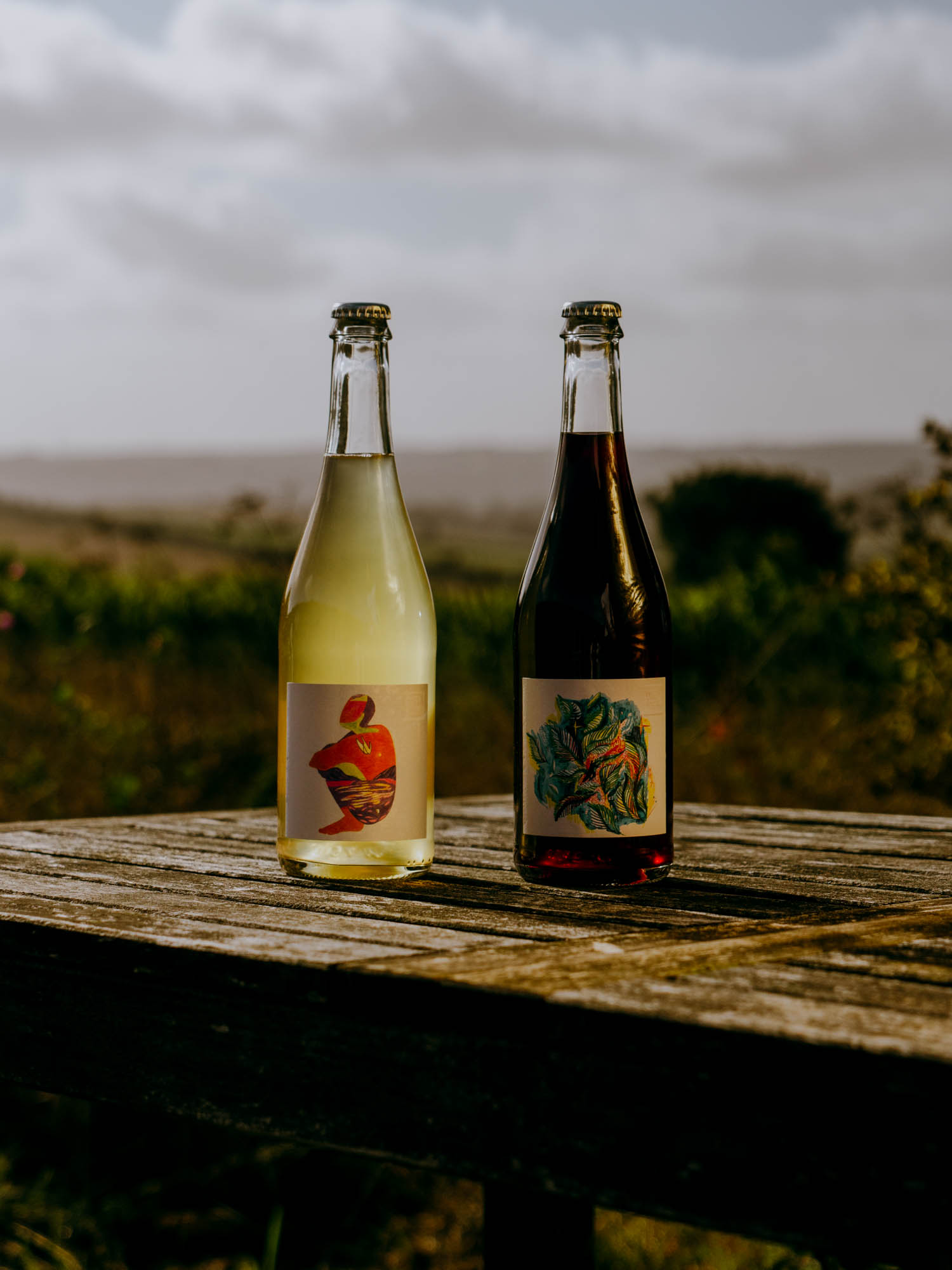
Wine names: Mind Over Matter (left) and Wild Juice Chase (right) 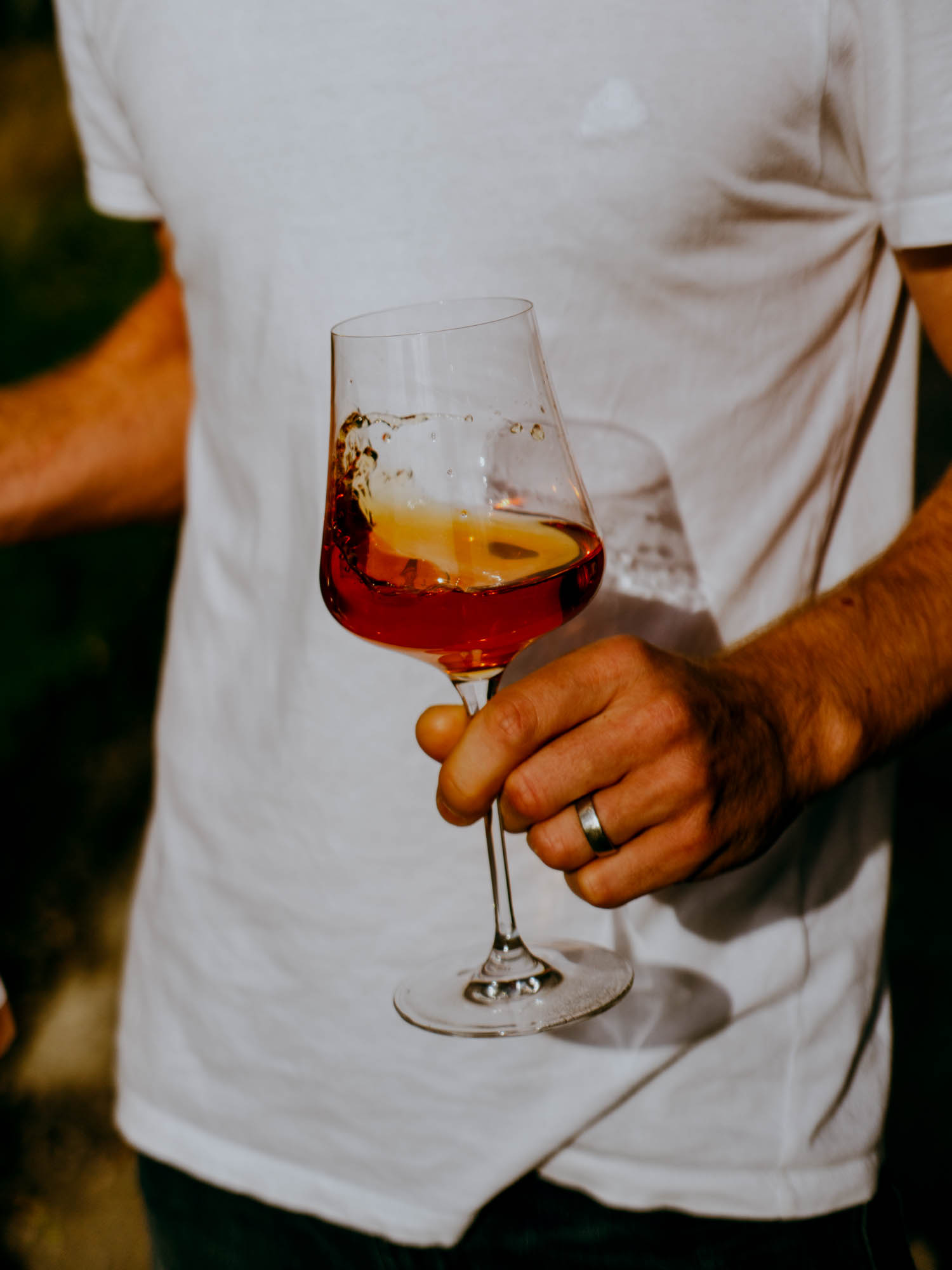
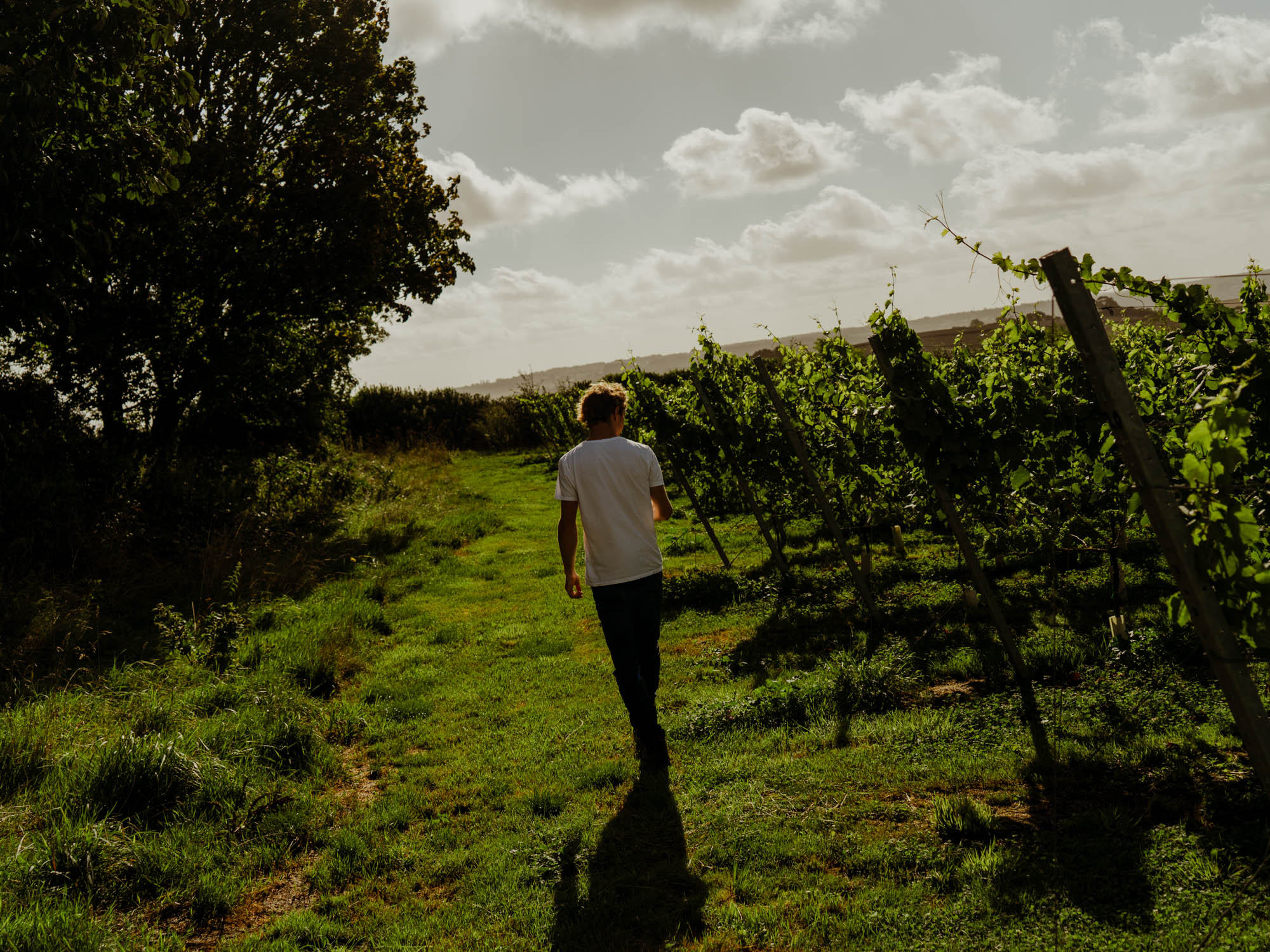
Winemaker Daniel Ham. 